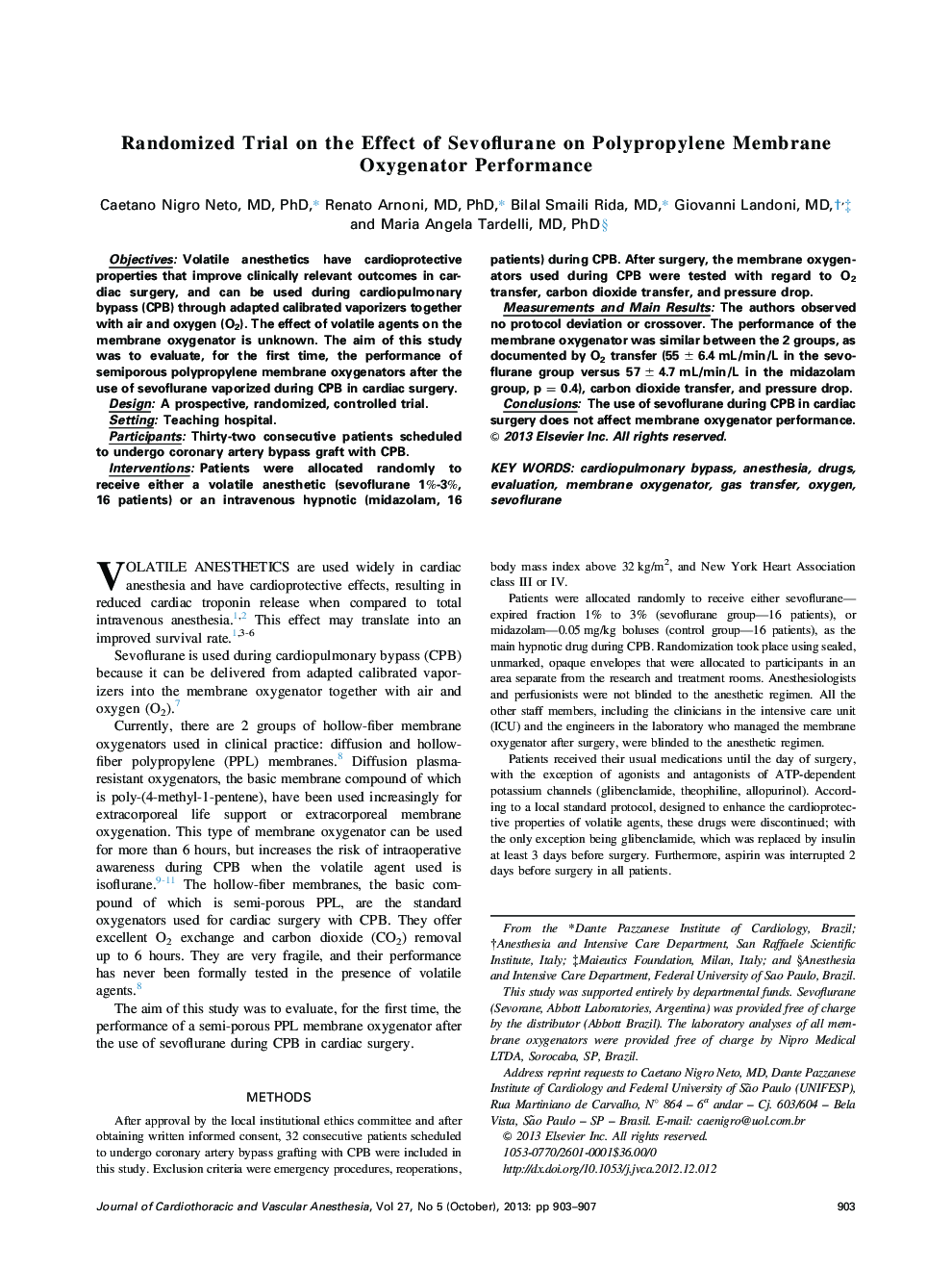| Article ID | Journal | Published Year | Pages | File Type |
|---|---|---|---|---|
| 2759785 | Journal of Cardiothoracic and Vascular Anesthesia | 2013 | 5 Pages |
ObjectivesVolatile anesthetics have cardioprotective properties that improve clinically relevant outcomes in cardiac surgery, and can be used during cardiopulmonary bypass (CPB) through adapted calibrated vaporizers together with air and oxygen (O2). The effect of volatile agents on the membrane oxygenator is unknown. The aim of this study was to evaluate, for the first time, the performance of semiporous polypropylene membrane oxygenators after the use of sevoflurane vaporized during CPB in cardiac surgery.DesignA prospective, randomized, controlled trial.SettingTeaching hospital.ParticipantsThirty-two consecutive patients scheduled to undergo coronary artery bypass graft with CPB.InterventionsPatients were allocated randomly to receive either a volatile anesthetic (sevoflurane 1%-3%, 16 patients) or an intravenous hypnotic (midazolam, 16 patients) during CPB. After surgery, the membrane oxygenators used during CPB were tested with regard to O2 transfer, carbon dioxide transfer, and pressure drop.Measurements and Main ResultsThe authors observed no protocol deviation or crossover. The performance of the membrane oxygenator was similar between the 2 groups, as documented by O2 transfer (55±6.4 mL/min/L in the sevoflurane group versus 57±4.7 mL/min/L in the midazolam group, p = 0.4), carbon dioxide transfer, and pressure drop.ConclusionsThe use of sevoflurane during CPB in cardiac surgery does not affect membrane oxygenator performance.
